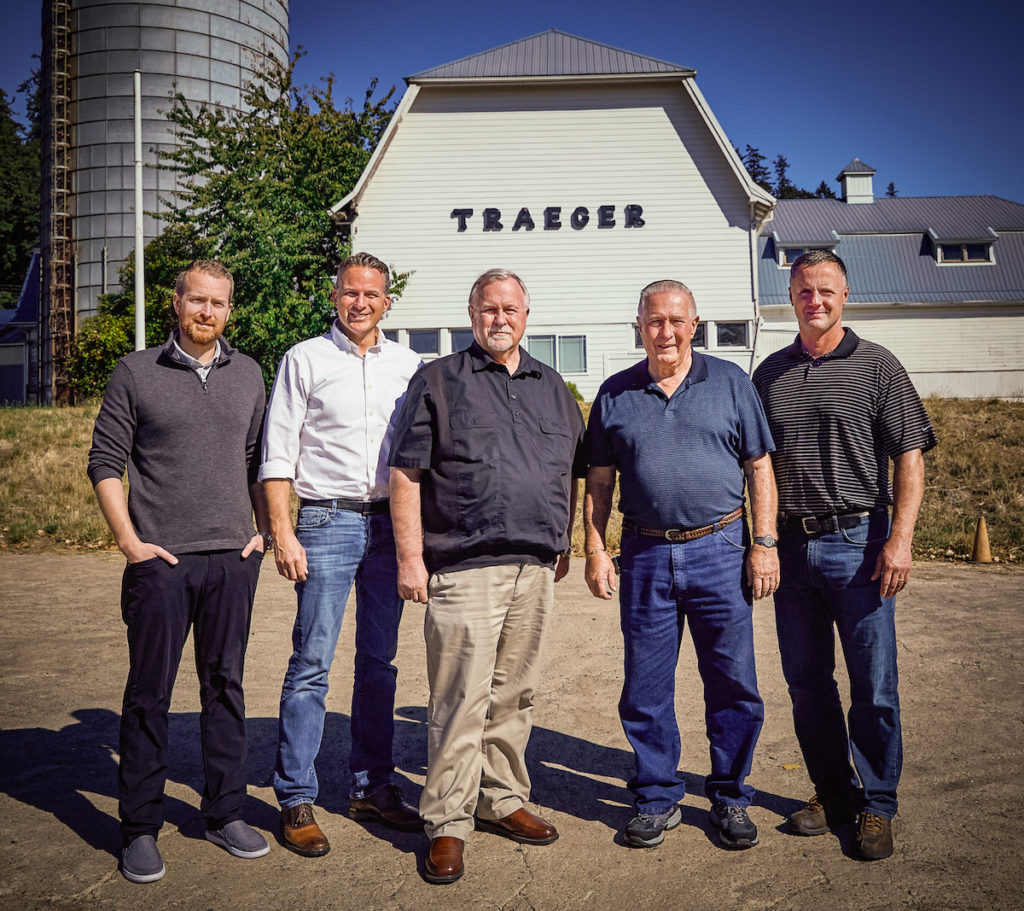In transactional work, don’t think just about what you’re getting, but also what you don’t want the target to do in the future.
Three family members with the surname Traeger had a business in wood pellet grills. They sold the business to plaintiff Traeger Pellet Grills. At least one of the Traeger family later joined a competitor, Dansons, d/b/a Louisiana Grills. This is one image that the court mentioned in its opinion, standing in front of the “iconic” Traeger Barn:
Traeger Grills was not happy and sued various members of the Traeger family for breach of contract.
The Asset Purchase Agreement said in Article 1.1 that the purchased assets included “all goodwill associated with the business.” Article 2.5 of the Asset Purchase Agreement said:
[T]he sale, assignment, conveyance and delivery of the Purchased Assets to the Buyer pursuant to this Agreement … will transfer all of the Seller Parties’ and any Affiliates’ ownership interests associated with or used or useful in the Business and the Purchased Assets constitute all that have been used in the past to conduct the Business.
(Emphasis in original.) The “Intellectual Property Rights” transferred in the “Intellectual Property Rights Assignment Agreement” included what was listed in Exhibit A as well as “all of the patents, applications, trademarks, copyright, know-how, droit moral, show-how, mask work, proprietary innovations and inventions, methods or techniques, likenesses or other intellectual property held by the Sellers or any of their Affiliates and used or useful, directly or indirectly , in the Business …” (Emphasis in original.) In turn Exhibit A to the Rights Agreement said the assets were
All the patents, patent rights, proprietary info and projects, trade secrets, personal goodwill and IP assets and properties used or usable in the business, including but not limited to the following: Traeger name and tree logo (which Seller is assigning including any rights to register, in connection with the Business only). Any other marks, logos, copyrights or other intellectual property used in connection with the Business, including without limitation likenesses of people and images used in advertising (who shall sign documentation allowing the Buyer to continue to use the likenesses without cost and deliver said documentation to Seller at Closing), packaging and labeling, artwork used on Business products …
(Emphasis in original.)
So, can Traeger Grills stop the Traeger family from using their own likenesses and names to promote Louisiana Grills?
No, at least not through a preliminary injunction. Traeger Grills claimed that “name” meant use of the Traeger name for all commercial purposes and that the Traeger family members assigned their personal goodwill and likenesses, not only as they had been used for the businesss at the time of purchase, but as they might be useful perpetually. The Traeger family argued that the agreement assigned only trademark rights.
The court held that the transfer of a right of publicity must be “unambiguous,” citing Madrigal Audio Labs. Inc. v. Cello, Ltd., 799 F.2d 814, 822 (2d Cir. 1986) and JA Apparel Corp. v. Abboud, 568 F.3d 390, 398 (2d Cir. 2009). The agreements were not unambiguous:
For instance, given that the term “Traeger” is unadorned and only written in lowercase throughout the agreements, as opposed to the trademark (TRAEGER), it could reasonably be read as either referring to the personal name, or only the trademark. Further, the use of the terms “used or useful” in the business could plausibly be read as the assignment of the likenesses of the Defendants as used until the agreements were signed, or perpetually. And, while the Traegers individually signed the agreements, their personal names do not appear in the relevant provisions. Then, the language assigning the “Traeger name and tree logo” could either reasonably be read as an assignment of the personal name, or as the assignment of the trade name and trademark. As the Plaintiff reasonably argues, “Traeger name” is unadorned and unrestricted by terms such as “but only as a trademark” or “TRAEGER trademark.” Nevertheless, it can also plausibly be read as the assignment of the trademark only as the terms “Traeger name” are joined with an “and” by “tree logo,” the very symbol that appears behind the capitalized trademark. Moreover, while the assignment of “likenesses or other intellectual property held by the Sellers … and used or useful,” along with the assignment of “likenesses of people and images used in advertising” could plausibly mean the assignment of the likenesses of the Traegers perpetually, it could also reasonably be interpreted as the assignment of the likenesses of the Traegers as used until the agreements were entered into by the parties. Finally, although the fact that Traeger Grills paid $9,000,000 for the intellectual property rights arguably creates a very strong inference that Traeger Grills obtained the right to prohibit the Defendants from using their names in a non-trademark sense, it nevertheless fails to make the contracts unambiguous as to that issue.
Since both parties had reasonable interpretations of the agreement, Traeger Grills failed to demonstrate a likelihood of success on the merits and a preliminary injunction was denied. However, the court entertained the possibility that the photos with the Traeger barn in the background might be a breach and ordered another hearing.
Names are tricky! When acquiring a business from the person after which the business is named, the person’s future use of their own name should be addressed head-on. The industry may be all they know and it would be foolish to assume that they will never use their personal name in association with it again.
Traeger Pellet Grills LLC v. Traeger, No. 8:19-cv-1714-AEP (M.D. Fla. Sep. 11, 2019)

This work is licensed under a Creative Commons Attribution-NoDerivatives 4.0 International License.


Leave a Reply